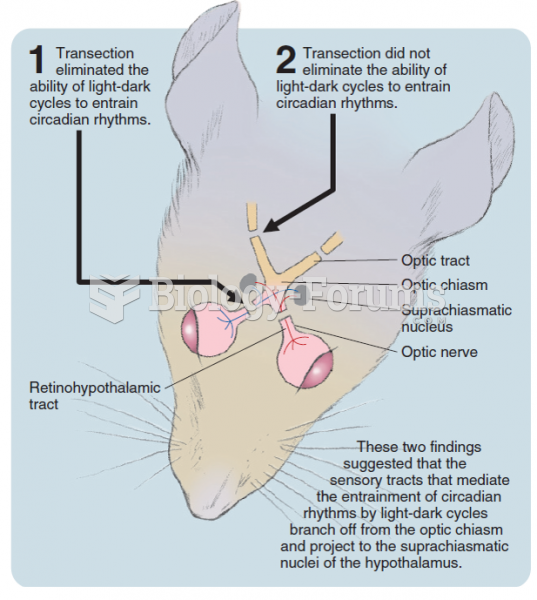|
|
|
Approximately one in four people diagnosed with diabetes will develop foot problems. Of these, about one-third will require lower extremity amputation.
The eye muscles are the most active muscles in the whole body. The external muscles that move the eyes are the strongest muscles in the human body for the job they have to do. They are 100 times more powerful than they need to be.
Egg cells are about the size of a grain of sand. They are formed inside of a female's ovaries before she is even born.
Asthma is the most common chronic childhood disease in the world. Most children who develop asthma have symptoms before they are 5 years old.
According to the FDA, adverse drug events harmed or killed approximately 1,200,000 people in the United States in the year 2015.






